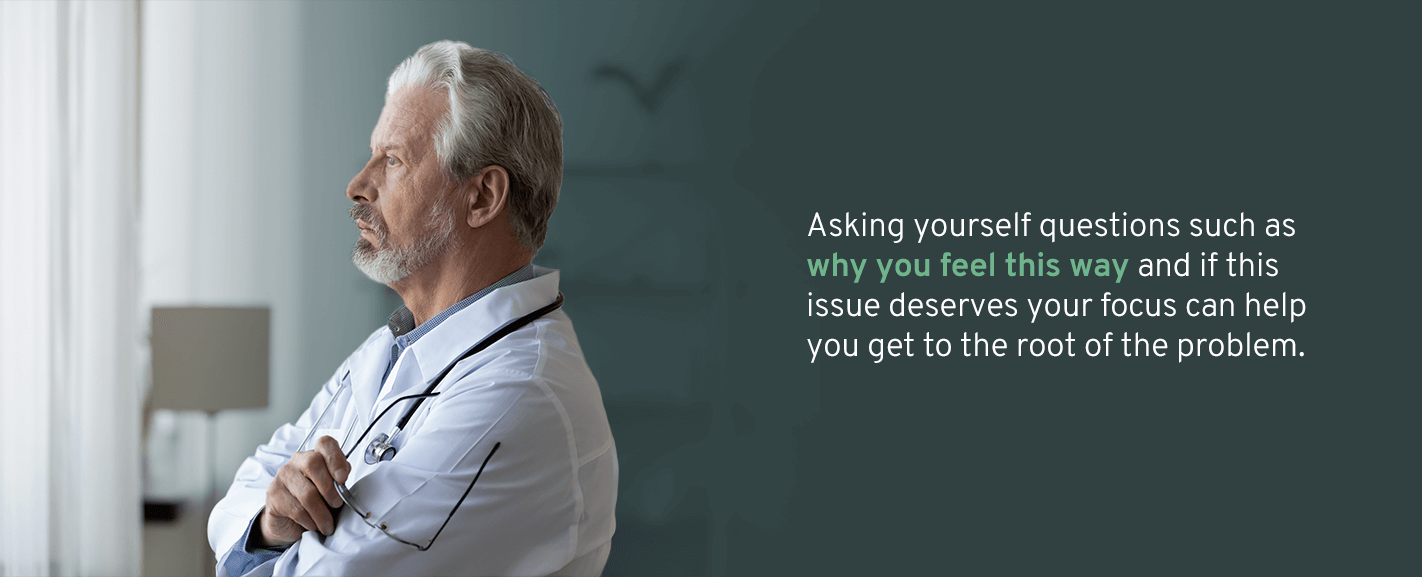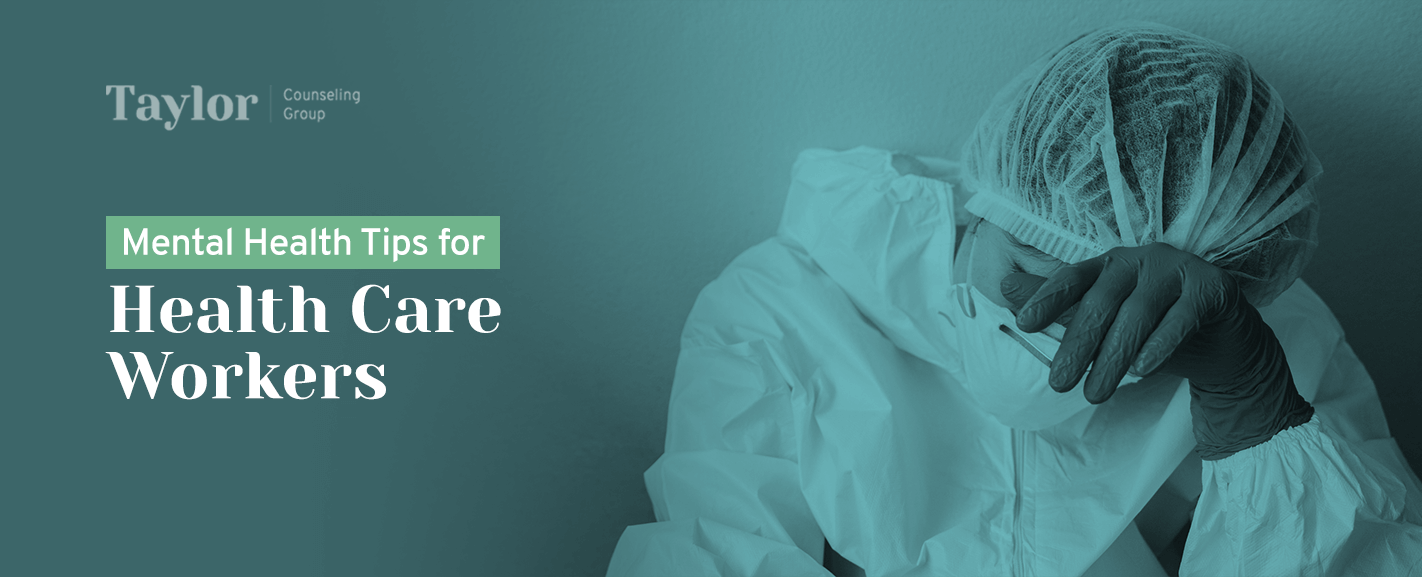Health care workers face many unexpected challenges every time they enter their workplace. Despite the mental and physical toll frequently experiencing stressful situations may cause, many health care workers often don’t engage in the self-care they need to protect their mental health.
6 Tips for Improving Mental Health for Health Care Workers
As the demands many health care workers face continue to increase, developing coping strategies to assist with mental health concerns is vital. Here are some go-to tips for improving mental health.
1. Exercise or Participate in Restorative Activities Regularly
Physical exercise can reduce stress levels and improve your overall emotional well-being. Setting aside time to exercise should be a priority. If you have a coworker or friend who would make a good exercise partner, they can help keep you on track and make exercising more enjoyable.
2. Spend Time Virtually or in Person With Family and Friends
Often when people feel stressed or overwhelmed, they begin to withdraw from social situations leading to social isolation. Try to find ways to connect with your friends and family in person or virtually on a regular basis. Scheduling this time in advance is a great way to ensure these moments of connection are not left up to chance.
If you are active on social media, spending less time on these platforms and more time with friends and family in real life can improve your mental health and lower stress.
3. Identify What Is in Your Control at Work
Thoughtfully and systematically examine different aspects of your job which may be causing frustration to determine what is within your control. If possible, make the conscious decision not to invest time and energy into the things you cannot control.
Being self-aware may also help you overcome stress or other negative emotions. Asking yourself questions such as why you feel this way and if this issue deserves your focus can help you get to the root of the problem.

4. Be Aware of Your Emotional Energy Levels
Everyone has days when they feel tired or lack motivation. It’s important to be aware of your emotions and how you are feeling. Schedule time once a week to assess your current emotional levels on a scale, with one being no energy and 10 being high energy. If you find that you are consistently recording low numbers during your check-ins, this may be a sign you need some time away from work or should increase your participation in restorative activities such as exercise.
5. Be Aware of Warning Signs
By ignoring signs of stress or burnout, your quality of life may continue to decrease, leading to catastrophic results. Even if you are experiencing mild symptoms, getting help early on can help you feel better sooner.
Paying attention to your daily activities will help you determine the severity of your stress or burnout. Some warning signs to pay attention to include:
- You are consuming more alcohol than normal or using it as a coping mechanism.
- You feel more irritable or have more interpersonal conflicts at home or work.
- Your mood changes frequently.
- You’ve lost your appetite.
- You are sleeping too much or too little.
By keeping track of these warning signs and speaking with a mental health professional, you can start your journey toward feeling better.
6. Protect Your Work-life Balance
Unplugging during your personal time can prevent your job from feeling all-consuming. For your work-life balance to be successful, this means not looking at your emails or completing paperwork during your personal time.
Health Care Worker Burnout During COVID-19
As nurses, doctors and other health care professionals continue to provide care during the COVID-19 pandemic, they face another widespread health crisis — burnout. Burnout is a psychological state with symptoms such as lack of enthusiasm, exhaustion and limited coping abilities.
While we may not know the full extent of the mental health impact of COVID-19 on health care workers, recognizing and developing coping strategies for burnout can help providers and patients. Making small changes to your routine can improve your overall mood and protect your mental health, so you can continue caring for and protecting the public during the COVID-19 pandemic.
Coping Strategies for Health Care Professionals During the COVID-19 Pandemic
When facing stressful and traumatic situations as you care for others during the COVID-19 pandemic, stopping to think about your mental health may be the furthest thing from your mind. However, performing a few simple coping strategies can protect your long-term mental health and emotional well-being. Take a few minutes before leaving for work, going to bed or in between patients to practice the following strategies:
- Recognize the vital role you are playing on the front lines of the COVID-19 pandemic: Remember that despite the many challenges you may be experiencing, you are making a difference and caring for those in need.
- Use self-compassion: You are doing the best you can in an unprecedented situation. Take each shift day by day or hour by hour. It’s OK to take breaks when you need them.
- Validate your emotions: However you choose to process the COVID-19 experience is acceptable. It’s normal to feel a range of emotions such as overwhelmed, anxious or sad.
- Find ways to stay positive: It can be easy to feel overwhelmed as you hear about the growing number of cases, shortage of resources and loss of life. Finding hopeful stories about communities coming together to donate money, help neighbors and recognize health care workers like yourself can help improve your mood and renew your sense of purpose.
When to Seek Help From Mental Health Professionals
Receiving help from mental health professionals is brave and the first step toward regaining your quality of life. Each mental health condition has its own signs and symptoms. However, if you are experiencing any of the following, you may wish to speak to one of our mental health professionals at Taylor Counseling Group:
- Noticeable change in your personality, sleep schedule or eating pattern
- Inability to perform daily activities
- Withdrawing from social situations or normal activities
- Excessive feelings of anxiety
- Unusual thought patterns or ‘magical’ thinking
- Prolonged feelings of sadness or depression
- Thoughts about suicide or frequent statements about harming yourself or others
- Substance abuse
- Frequent and intense mood swings
- Excessive feelings of anger or violence
Improve Your Quality of Life With Taylor Counseling Group Today
Taking notice and speaking up for your mental health needs is essential for all health care workers. If you feel burnt out, stressed or would like to speak to a mental health professional, Taylor Counseling Group is here to help. Schedule an appointment at one of our Texas locations to start feeling better today!






